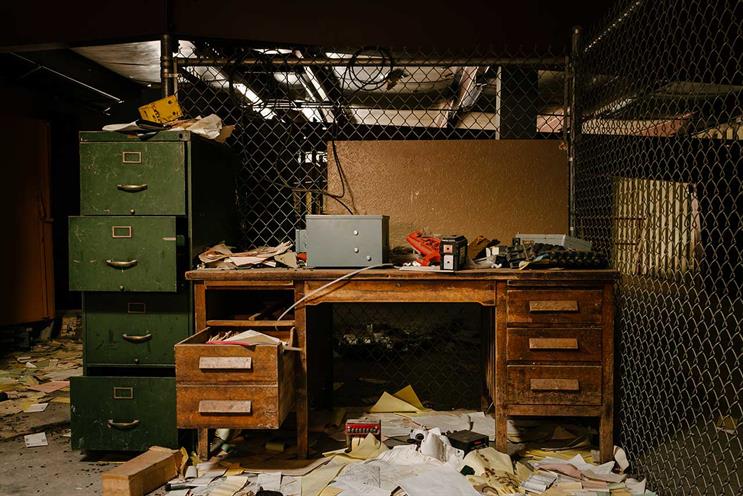How clear is your desk? Mine is perpetually cluttered. With apologies to those among us who love order above all things, I find it easier to work among an element of clutter. It seems to help my thinking and to drive cross-pollination – an essential ingredient of creativity for me.
There's some personal items: photos of my family, objects with significant meaning, including the mug that Kathryn Jacob (chief executive of Pearl & Dean and my co-author for The Glass Wall) gave me that is too boastful to use but holds my collection of pens, and a stapler that looks like a goldfish.
Many people have to have clear desks – it's company policy. I'm lucky to have the option. There has long been a fashionable corporate idea that there should be no personal items on people's desks. No photos, kids' drawings, no mugs. It's meant to add to everyone's focus and eliminate distractions.
This wouldn't have worked for me, particularly when I first returned from maternity leave. Photos of my children were essential – without the photos, I would have missed them much too much.
In the , we ask a series of regular questions including: "If your home fell down, every living person and thing is safely outside, and you were able to retrieve three personal items, what would they be?" This question always reveals so much about our guest.
Occasionally, the guest has absolutely no answer. These are the minimalists. Those people I would guess who would thrive with a clean-desk policy. Bruce Daisley at Twitter, for example, couldn't think of a single item he cared enough about. Mostly, however, there's a reply, often very moving, and usually about something that has personal and emotional value to the speaker.
Stephen Allan, MediaCom's worldwide chief executive, talked about the sailor's ribbon that his father had been given on the notorious , a ship that sailed with Jewish refugees from Germany on the brink of war, after his grandfather had been imprisoned, then released, from a concentration camp and was allowed to travel on the ship.
Dom Joseph, Captify's chief executive, would grab a picture of his mum at 19 and an original photograph of Kurt Cobain. MediaCom's UK chief executive, Kate Rowlinson, would take the poster from the first time she saw Queens of the Stone Age perform live in Australia. Digital guru Rob Norman has a copy of Allen Ginsberg's poem Angkor Wat annotated by the author. And 北京赛车pk10's Claire Beale would pick up a musical box in the shape of a chalet that belonged to her dad.
I could go on – there are many more. All well and good, but had we better keep them out of the workplace because they are distracting?
In , the new Matthew Syed book, he recounts a scientific experiment that proves the "lean office" – ie clean-desk policy – isn't efficient or productive.
University of Exeter professor Craig Knight carried out a controlled test of two groups of people. The first worked in a clean-desk, minimalist environment; the second had plants and pictures on the walls. Group two performed 15% better. Knight then took a third group and allowed them to personalise their workspace, however they wanted to. These spaces were very different; some were minimal, while others looked like my desk on a cluttered day. Productivity soared – up 30%.
"Give people autonomy and they come up with something better than anything else," Knight concludes. Syed comments that the power in this lies with personalisation: "People could design spaces that they liked. They could mould the space to their own characteristics. This may sound like a small thing, but it is actually a very big thing. It was an approach that took diversity seriously."
It makes cleaning the office more tricky. But it might be worth it for the 30% improvement in productivity.
Delivering diversity is not just about statistics about the make-up of the workforce. It's about adjusting the workplace to suit individuals and allowing everyone a sense of belonging.
Sue Unerman is chief transformation officer at MediaCom
Picture: Getty Images


